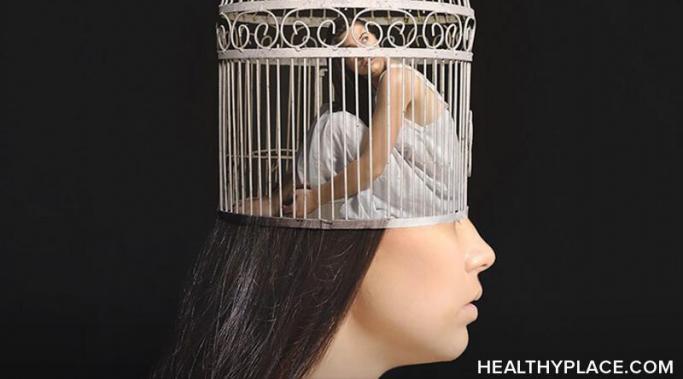Blogs
Comforting ourselves as we cope with depression is an important skill. While others may offer us comfort and want to help, they are often unable to truly do so. Only we understand our own needs for comfort completely, and we need to work towards being able to meet these needs. It's a process, though, so don't feel rushed.
Behavioral addiction and substance addiction have similarities and differences. I've learned over time that most people only associate addiction with substance abuse or chemical dependency, often leaving those suffering from behavioral addictions completely alone and underserved in their recovery process. In my recovery journey, I have had to overcome a lot on my own and even to this day, I have been told by many that my addictions either aren't real or aren't important simply because they don't involve illegal or harmful substances. Behavioral addictions are just as valid and often just as devastating as substance addictions, although sometimes the recovery process for each one can differ greatly.
Releasing anxiety and stress from your body is as important as letting it go from your mind. Although we speak of "mind" and "body" separately, we're really one cohesive unit. When we're stressed, we're affected everywhere. When we're anxious, we feel it throughout our being. Therefore, working on the physical aspects of anxiety can have a positive ripple effect in your entire being, reducing physical symptoms as well as improving mood and thinking. Below, you'll find six ways to release anxiety and stress from your body.
Thinking traps, also known as cognitive distortions, are exaggerated or unbalanced thinking patterns that negatively impact mental and emotional health. While thinking traps are common and can affect anyone from time to time, people living with bipolar disorder, depression, or anxiety are especially susceptible. The following are three common thinking traps that I often find myself caught in, especially in relation to my job: all-or-nothing thinking, overgeneralization, and labeling/mislabeling.
Having a diagnosis of borderline personality disorder (BPD) can be really challenging at times. Not only is it tough having intense emotions, difficulties with self-criticism and near-constant fear of abandonment, but the condition is still shrouded in misunderstandings and misrepresentation. I have found it beneficial to remind myself of the following four things and wanted to share them in case they help you.
My daughter is only three years old, but I already worry that she might experience some of the same mental health issues I did growing up. There are some signs I want to look for.
Fear of public speaking is one of the most common phobias. Even those who experience mild forms of public speaking anxiety can feel debilitated by their fear. I fall into this category, and a recent opportunity to be a keynote speaker for a large event forced me to face my fear of public speaking in a creative way. Read on to learn how you too can tackle your fear of public speaking.
In my last post, I discussed why being an introvert is beneficial for the management of my anxiety, and how it could be beneficial if others adopted introverted traits for the management of their anxiety. In that post, I fear I may have made the adoption of those traits an easier thing that it really is.
Recognizing the only ones we can truly charge are ourselves, it seems it shouldn't be so difficult to stop self-stigma. On the contrary, it can be very challenging. If you are having trouble putting an end to mental health self-stigma, don't worry. It's not just you.
There is a common—and dangerous—eating disorder stigma in society that says eating disorders result from vanity and a need for attention, but the truth is, eating disorders are not for the vain. This eating disorder stigma minimizes just how severe and catastrophic these illnesses can become while reinforcing the belief that sufferers cannot reach out for help, lest they be dismissed as attention-seekers fixated on their own appearance. But in order to dismantle this added layer of cultural stigma that keeps so many victims both silent and ashamed, it's important to realize that eating disorders are not for the vain. Rather, they are caused by intricate, nuanced factors that are often unrelated to vanity and rooted instead in trauma, self-loathing, or insecurity.









